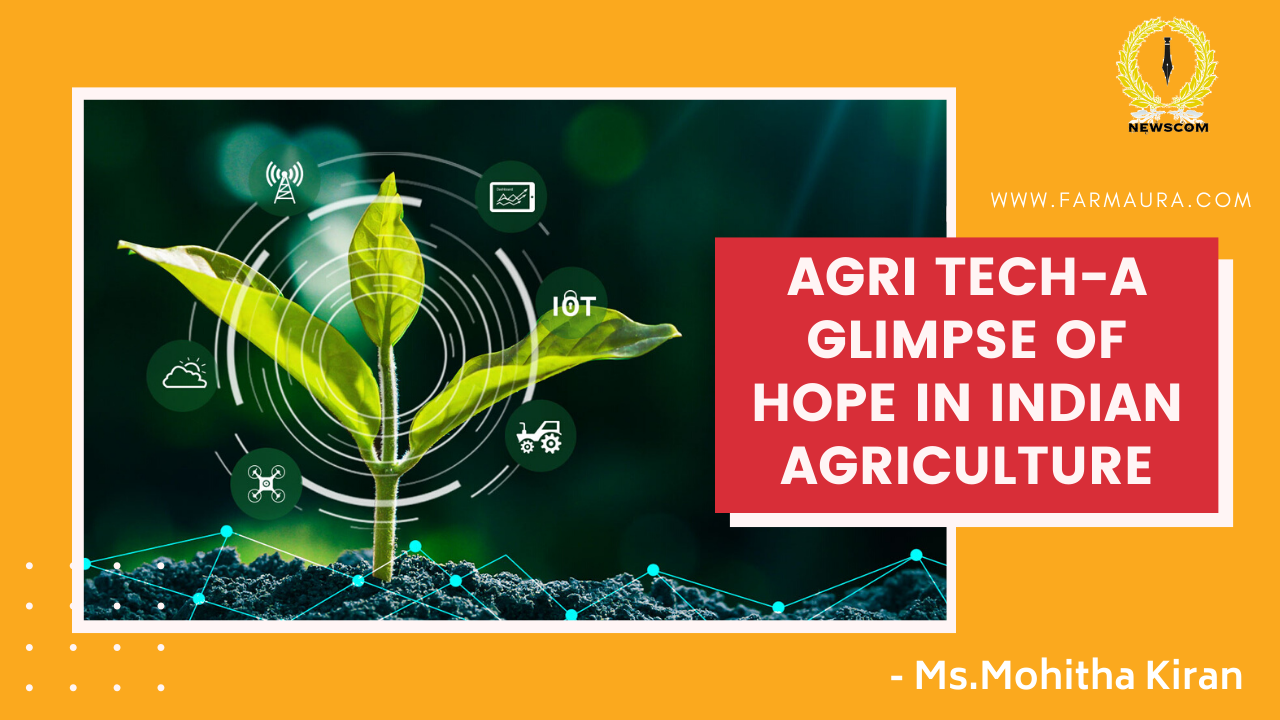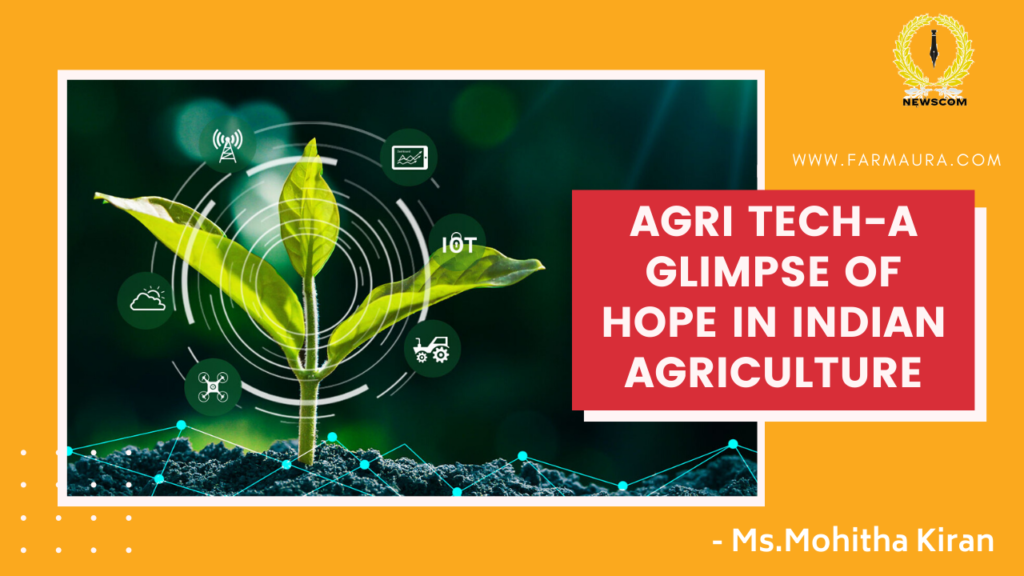It was the harvesting season of Rabi for many states across India when the lockdown was imposed in response to the COVID-19 pandemic. The consequences have echoed in every corner of India leaving agriculture with no exemption despite the dispensation from the government. Agri supply chain is always been one of the biggest concerns in Indian agriculture which needs to be solved. In these unprecedented situations, it was understood that agriculture cannot survive depending only on traditional methods. Leveraging technology like AI, IoT, ML, Blockchain is necessary for the farming industry. Agri-tech fills the gap by addressing the uncertainties regarding shifting market conditions, soil, water, climate, pests, and also it boosts healthy production and revenue. Large scale technology intervention cuts down the input cost and promotes precision farming.
Globally Agri-tech startups accounts 0.6% of all global startups with the least exit rate of 0.5%. India stood in 3rd place in fundraising for startups following the US and China. In India, Agri-tech is growing at a very faster rate with investments of more than 40% in this sector. Amidst the global crisis, unlike the other sectors, it’s a V-shaped recovery curve which is attracting investments and venture capitals from the firms. This lockdown disrupted the supply chain where the agri-tech startups involved in B2C and B2B e- platforms helped direct linkages. Some agri-tech startups have created e-mandis and made the procurement process easy.
Although agri-tech startups are growing at a faster rate in the postharvest chain most of them weren’t able to restrain the farmers from following traditional farming. It is because, 86% of Indian farmers are small and middle farmers, with fragmented land with least awareness about agri-tech and affordability is an issue but it is very crucial to make them use technology inputs to achieve better economic growth as they can’t afford the technology. Farmer faced difficulties in the marketing of their produce mainly the perishable goods while customers became conscious about the traceability of their food. End to end traceability from farm to fork, access to the market at a fair price, and warehousing logistics has become more concerned in this lockdown.
Agri-tech firms need to accelerate the digitization of storage and warehousing, accessing the market prices for farmers, digital tracking of sustainable agriculture practices, digitization of government schemes, creating e-market platforms for B2B and B2C, e-retailing of agri inputs, custom hiring platforms, end to end traceability of agri supply chain, food processing, safety, and distribution.
The global crisis has brought us the urgency for smart solutions. With a good scope in Agri-tech sector, it is necessary to take traditional farming to the next level by making farmers aware of the new technological interventions.






Keep it up Mohita
Hi Mohita
I have read your article and it is very good.